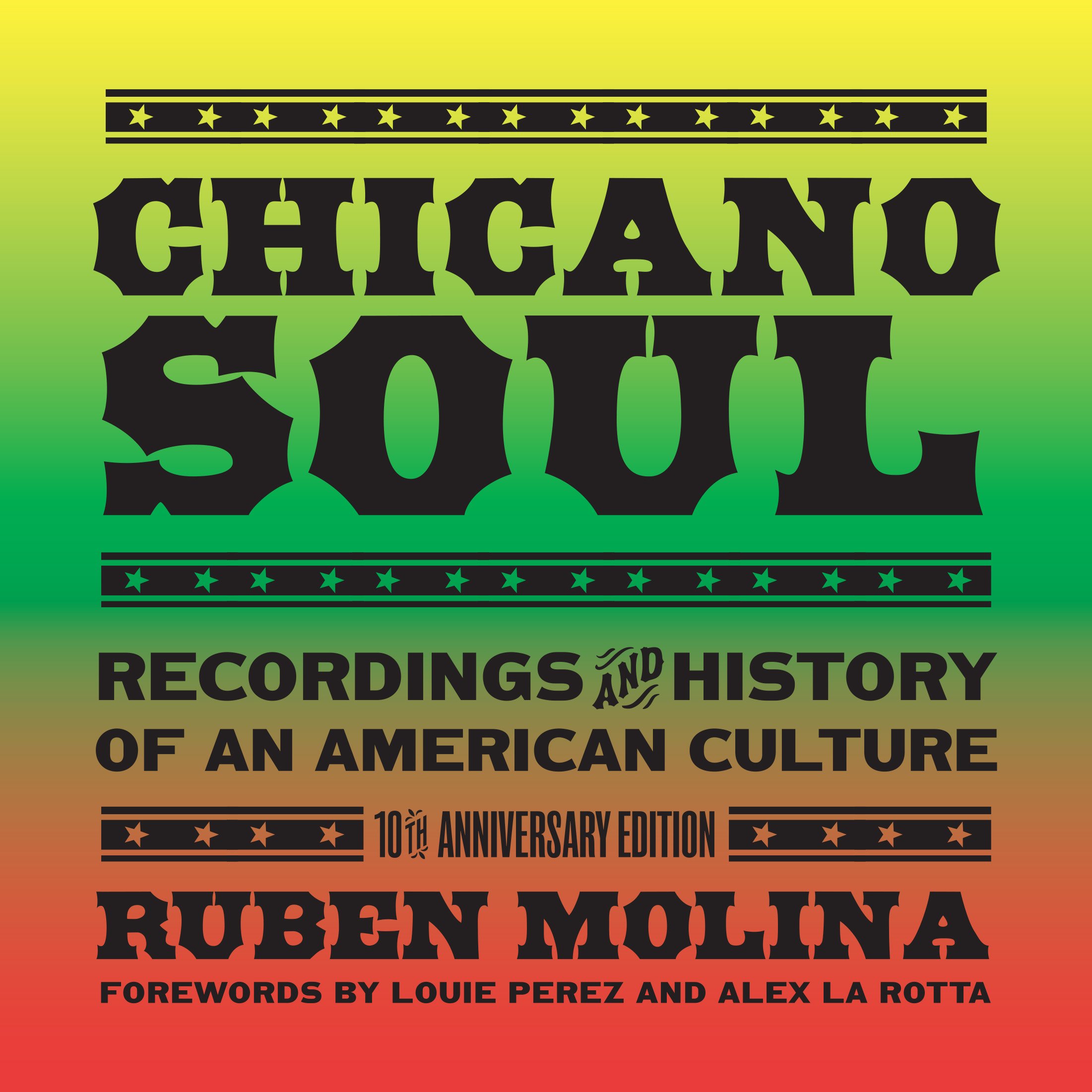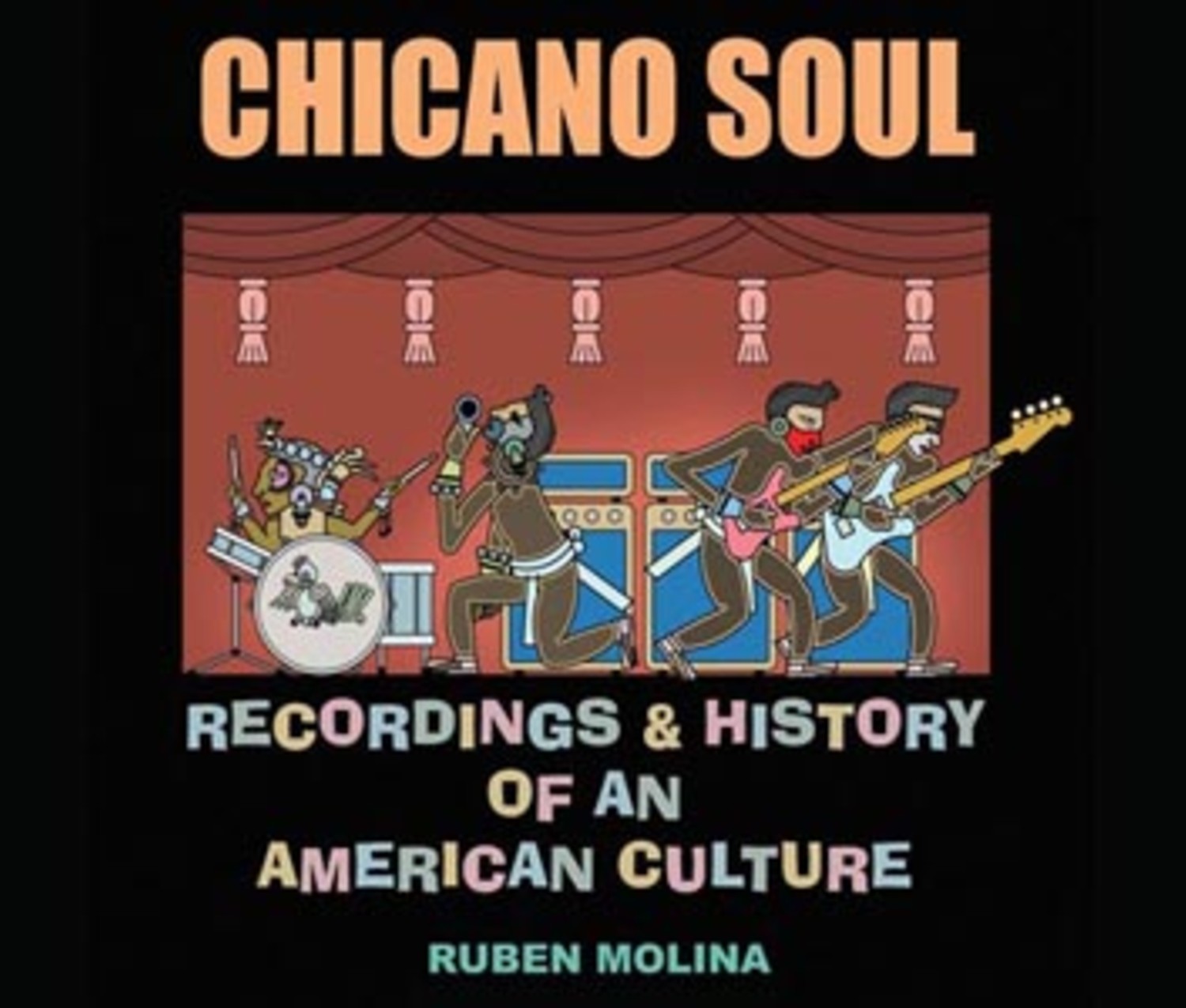Losing stuff sucks. About 4 years ago my book Chicano Soul: Recordings and History of an American Culture, was lost, stolen, misplaced, abducted or spontaneously combusted—basically it went missing. I searched everywhere 3 times, blamed friends and eventually gave up. It was gone. It was my bible.
By the time I decided to get a new one thinking it would be easy, seeing that when I got my copy it was easy to come by and affordable, it was out of print. After years of looking on eBay (where it never came up) and on Amazon (where I saw it twice for way more than I paid for) the book is being reissued by Texas Tech University Press for its 10 year anniversary.
Chicano soul is basically music created by Mexican-American artists from the 50s, 60s and beyond. A lot of bands were also a mix of races that included African-Americans and Anglos—such as Sonny Powell & the Night-Dreamers and Donald Ray & the El Paso Chessmen—both out of El Paso.
The book takes you back to ground zero for Chicano soul and works its way up, also concentrating on many cities where the music was prevalent—Los Angeles, San Antonio, El Paso, Albuquerque and all the way up to Detroit, and everywhere in-between. The music dates back to the 50s, goes heavy into the 60s and continues on into further decades.
Although the music is mainly rock & roll, garage, R&B and soul, the book shows how the evolution also drew from jazz, blues, traditional Mexican music such as ranchera, norteña and conjunto music—as described on the publishers website.

The book delves deep into the early breakout artist in the Chicano soul scene—Rosie and the Originals “Angel Baby” was one of the first hits, and so was “Tequila” by The Champs (a song written by Danny Flores the saxophone player).
Arguably the most iconic and influential Chicano artist was Ritchie Valens, famous for songs such as “La Bamba” and “Come on Lets Go.” Forefather of the movement, Valens helped give a push-start to the careers of all of the young Latino kids around the San Fernando Valley area in California—seeing that his music was on the radio and was a hit—and was also a big influence throughout all of Aztlan. After the passing of Valens in 1959 at the age of 17, Chicano soul, rock & roll, R&B and garage bands began to emanate mainly across the southwest of the United States, but also from the north.
Southern California had probably the most bands with that Chicano flavor: Thee Midniters, Cannibal and the Headhunters, The Romancers and breakout artist Chris Montez where all part of the growing scene. The California Chicano scene was huge with thousands of attendees at the events, lots of places to play, tons of bands and record labels to help expose and celebrate the music on wax.
El Paso plays a huge part in the scene and gets a lot of love in the book. The author Ruben Molina takes us way back to the late 40s where jazz and R&B artist, El Paso born Don Tosti, recorded the song “Pachuco Boogie.” El Paso legend Steve Crosno deservingly gets a mention and a praise for being a pioneer DJ by mixing radio playlist with Anglo, African-American and Chicano artist. He would also play local artists from his own label Frogdeath, as well as other bands on very small labels out of El Paso.
The Chicano Soul book is not only a must read for music enthusiast and Chicano people, but is also essential in presenting an important part history and background of the bi-cultural upbringing of creative and talented musicians adapting to their past and their present, binding together a common and relatable way of life of living in America. You can preorder the book on Amazon or on the publisher’s website ttupress.org set to be release for July or August.
https://www.youtube.com/watch?v=t1Lf81W0vpA


